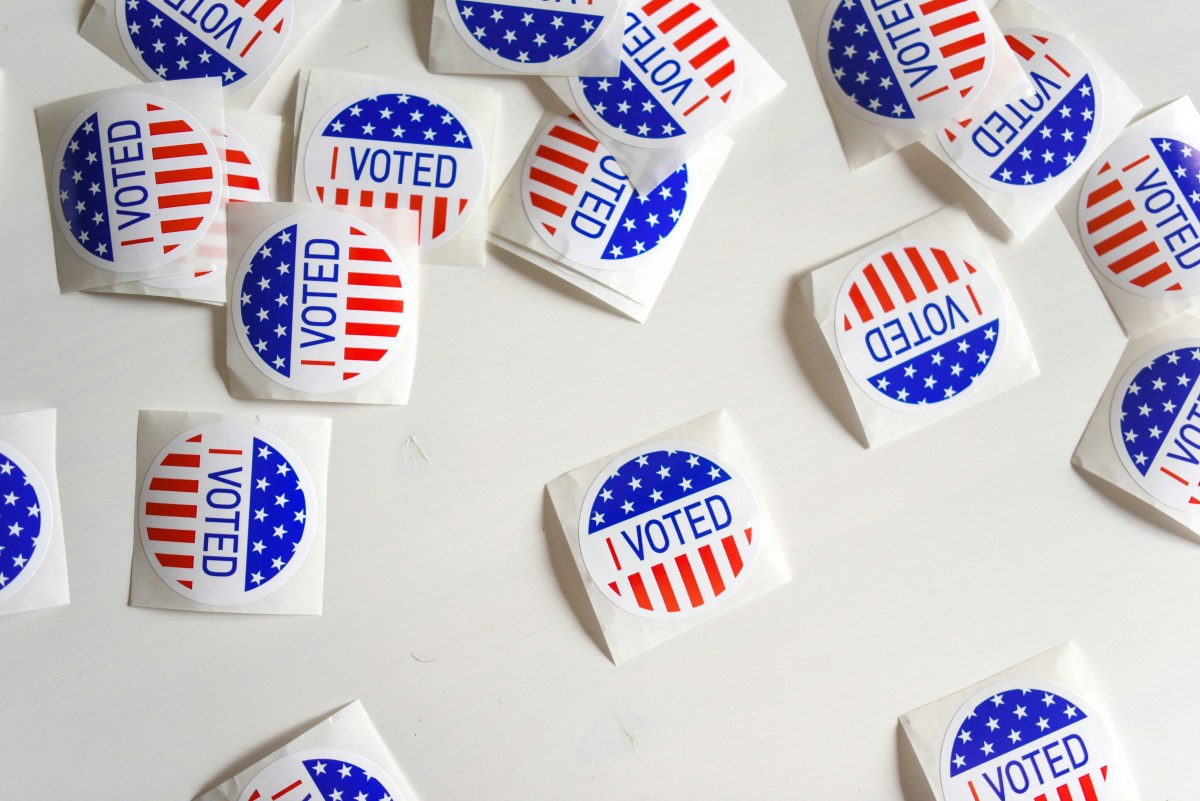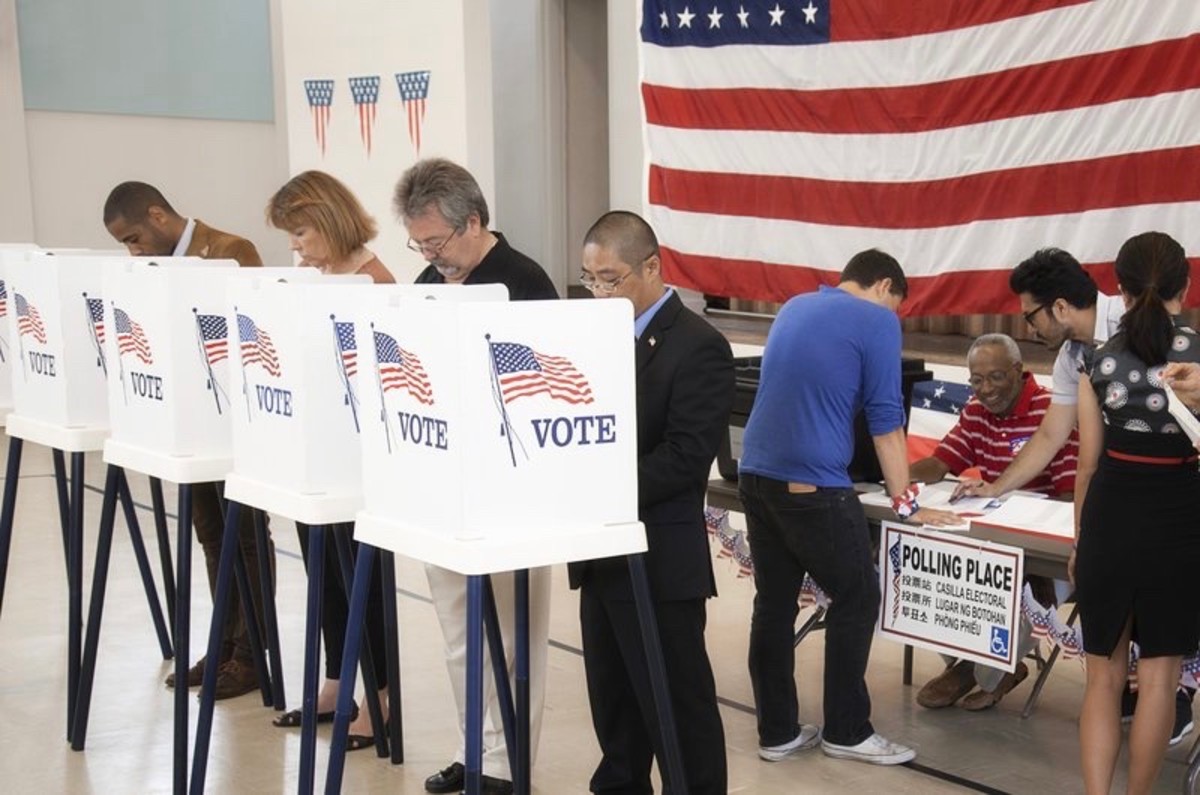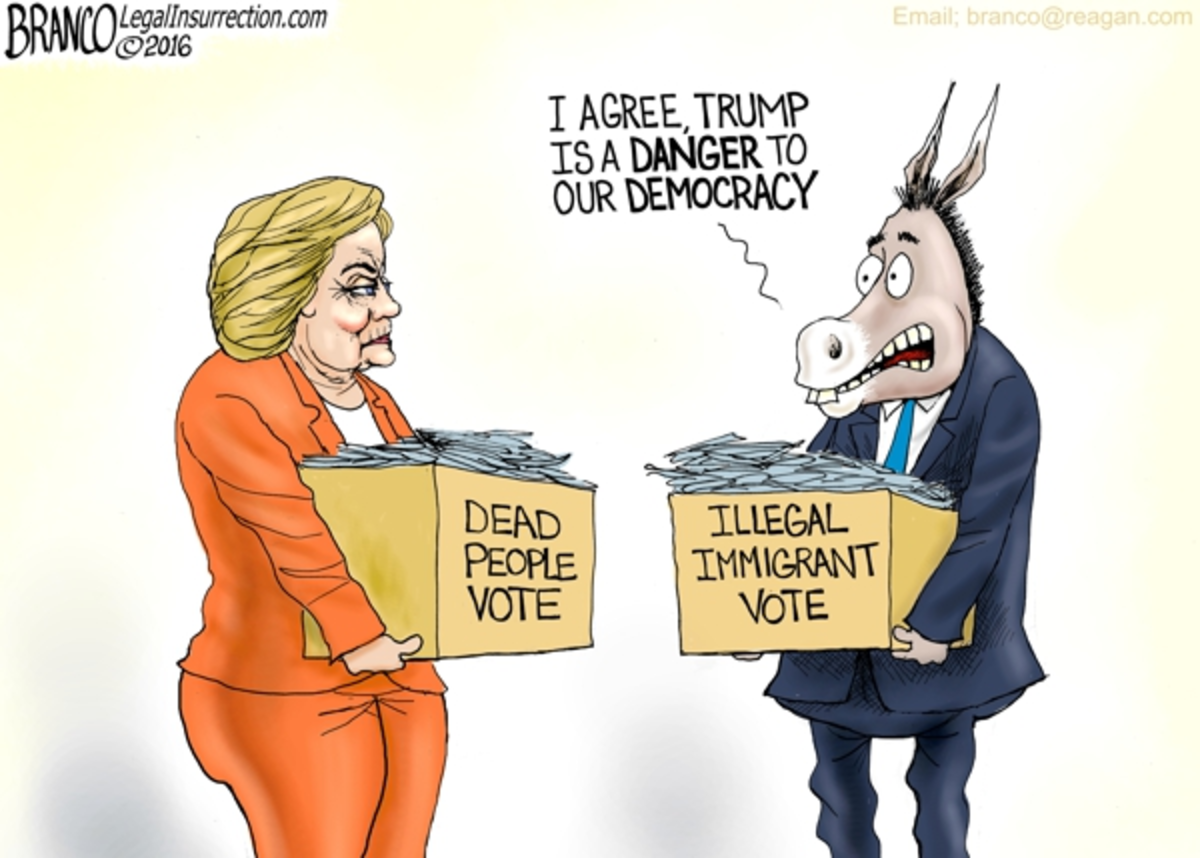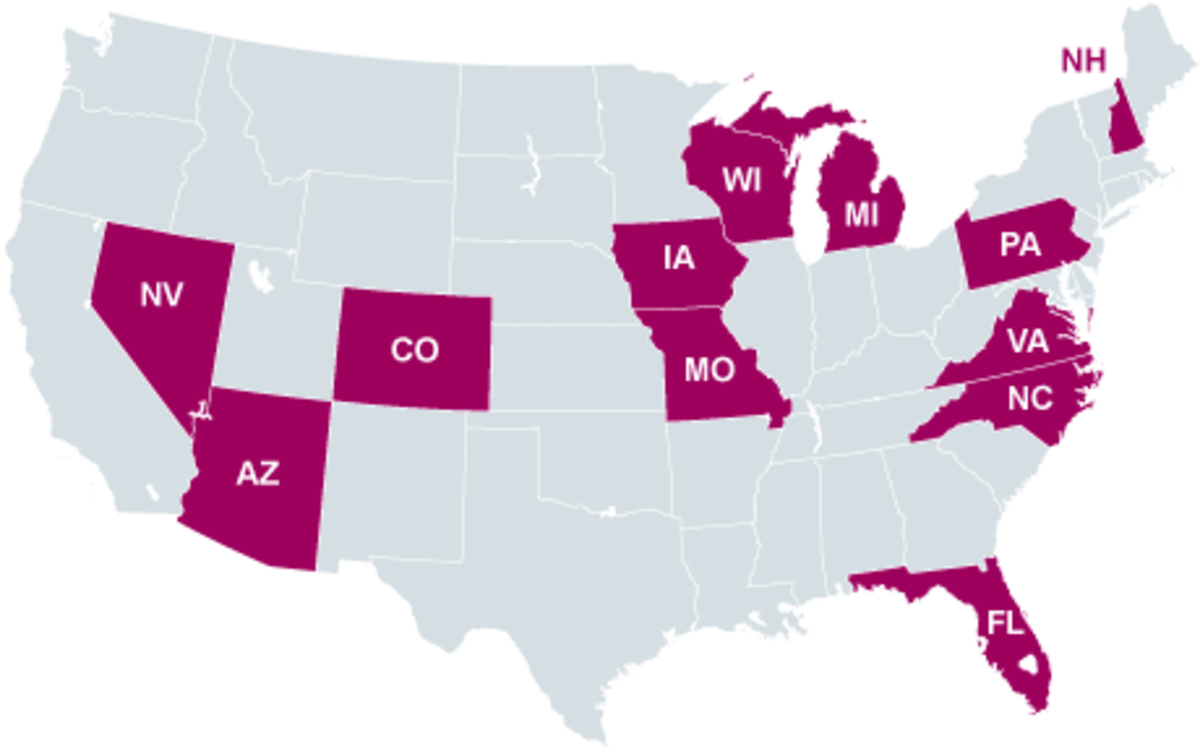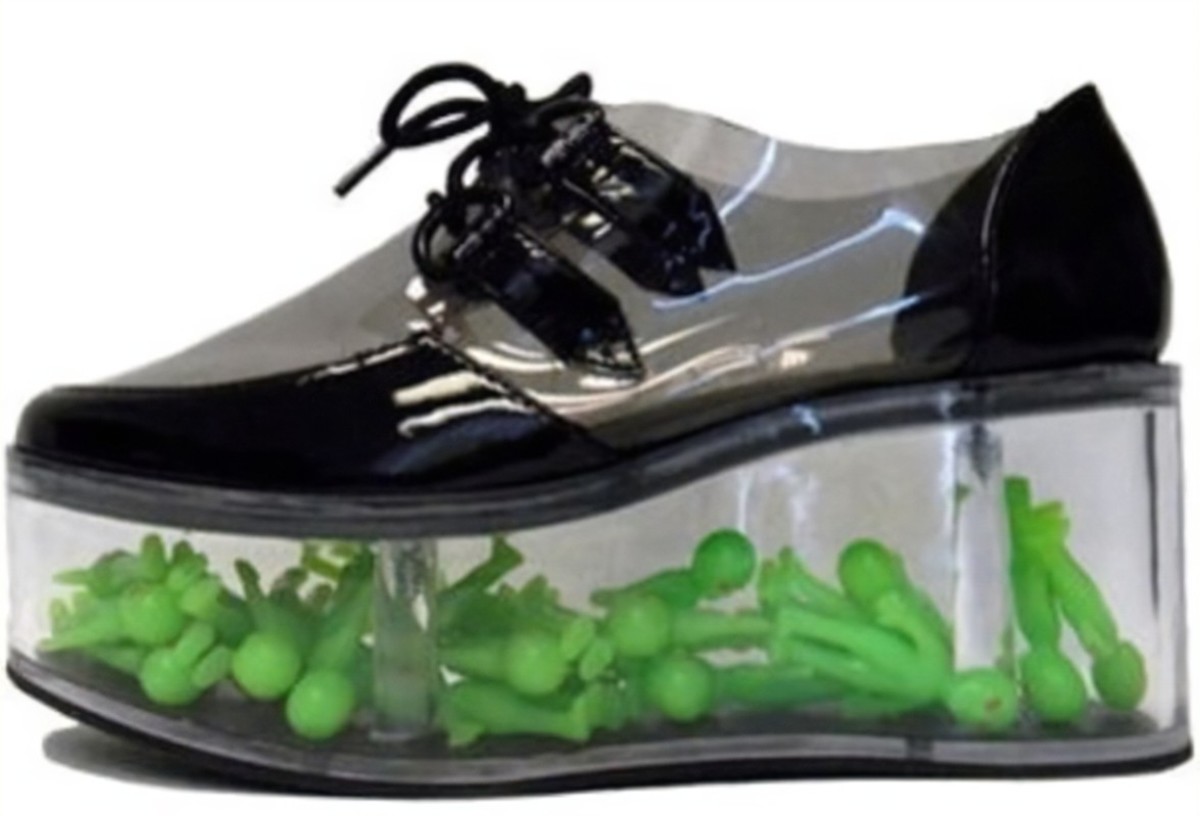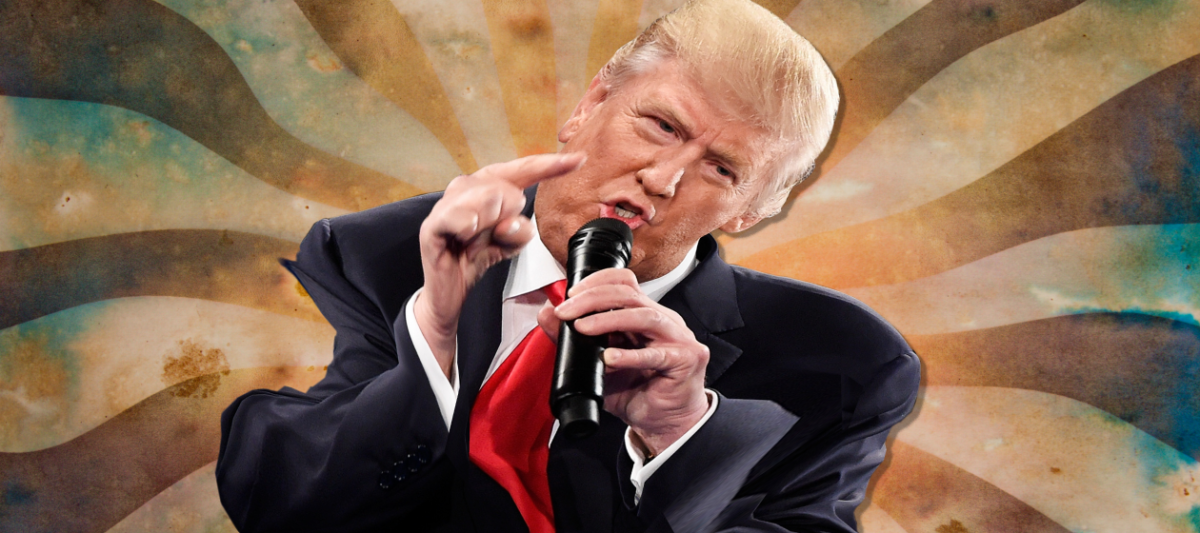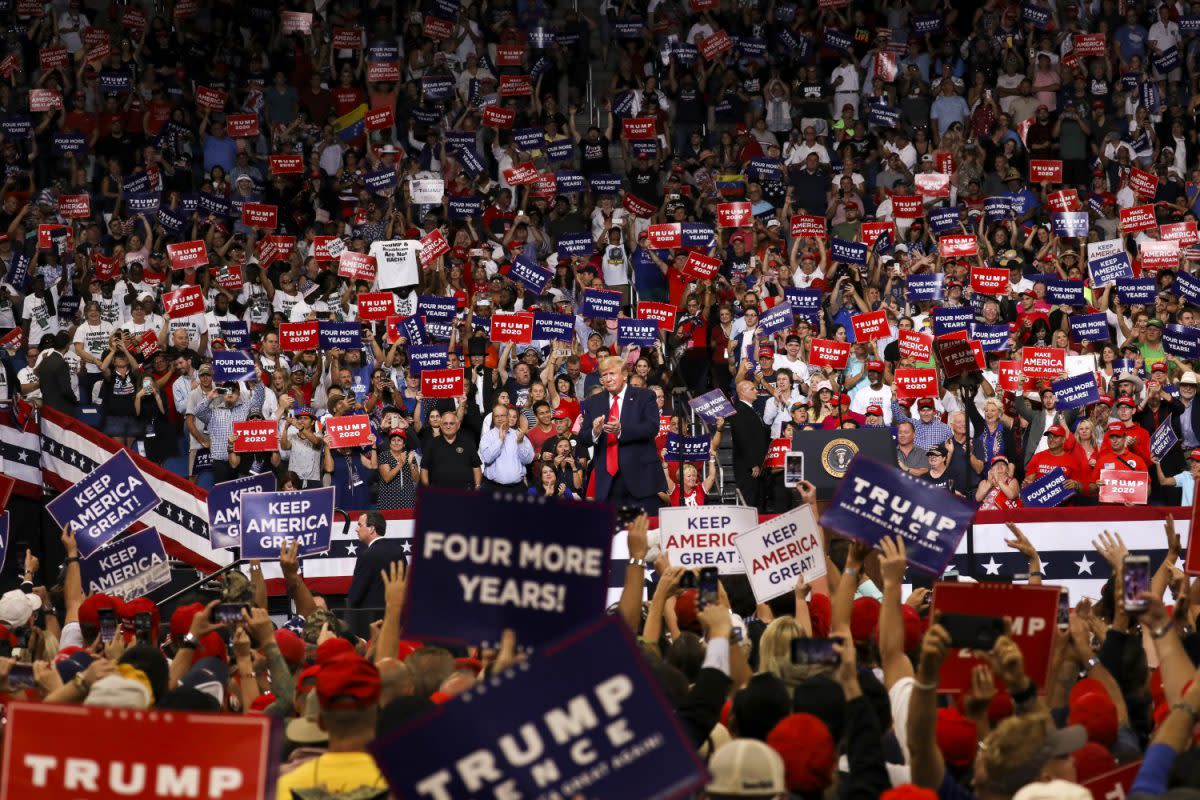Voting in Minnesota? Wear Your Plain Brown Wrapper
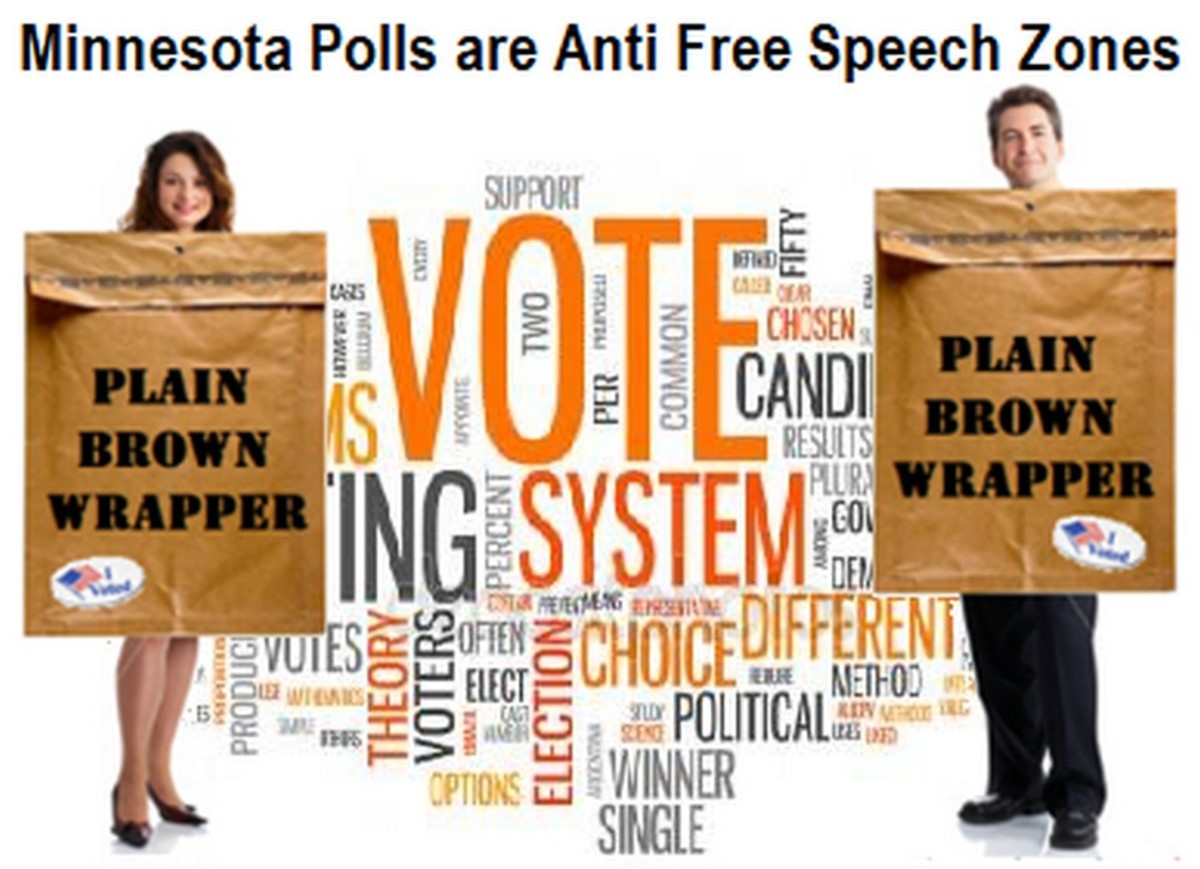
Commentary From Your Libertarian Opinionizer
On February 28 the US Supreme Court Justices, all wearing identical black robes, considered whether Minnesota voters should be required to wear plain brown wrappers while casting their votes. Their ruling is expected sometime in June.
Some articles just write themselves. And when they do they’re frequently irreverent, rude, cheeky, mocking, discourteous and—as the source for this commentary so plaintively puts it—even lacking in order and decorum.
An Associated Press article pointed out that the US Supreme Court will be deciding not only what is politically correct for people showing up at the nation’s polling places but what is sartorially correct as well.
The Great Minnesota Wardrobe Malfunction
The case stems from a voter named Andy Cilek who arrived at a Minnesota voting place sporting a T-shirt embellished with a demure “Tea Party” monogram. He, along with another voter, refused to cover up their indiscretions when elections officials asked them to.
Minnesota, like some other states, bars voters from wearing political items to the polls. But wait. The Tea Party isn’t an actual political party; it’s just a special interest group.
But the Minnesota law is loaded. It has wide-ranging powers to ban "political" attire, including clothing promoting a group with “understood” political views.
That would mean that libertarians who are not supporters of the Libertarian Party who wear a T-shirt with the red-white-and-blue porcupine logo would also be required to cover up or turn their shirts inside out.
So the Gopher State not only insists on political correctness but fashion correctness as well. What’s next then? What about other tell-tale giveaways about people’s voting proclivities? Conservative men can’t wear a suit and red striped power tie and comb their hair with a neat part because that’s an obvious display of his Republicanism. Any woman in a dress will obviously be voting Republican.
Progressive women wouldn’t have been allowed to wear pantsuits during the 2016 presidential elections since they were clearly signaling their support of Hillary and men even appearing to be slightly long-haired Neo-Hippies or 21st century New Agers will be “understood” as being liberal Democrats.

Fashion Fascists vs Voter Vogue
So what is the Minnesota justification for their fashion policing at the polls? According to the AP article it’s “to reduce the potential for confrontations or voter intimidation.”
Are they kidding? Wear a Green Bay Packers jersey at a Minnesota polling place and you’re guaranteed to get confrontations. And a cheese head hat isn’t even a political symbol.
Beyond that, anyone who feels intimidated by pieces of cloth with writing or pictures on them need to just stay in the safety of their own homes and mail in their early voting ballots in plain brown wrappers.
A lawyer behind the Supreme Court challenge is quoted as saying “voters wearing political apparel shouldn't have to hang up their hats, turn their T-shirts inside out or put their buttons in their bags just to cast a ballot.”
He also opined that wearing political clothing is "a passive way to express core political values."
But in liberal Minnesota it’s really more than just about being “passive,” isn’t it? It’s about being politically and socially “passive-aggressive!” Remember the whole point of passive-aggression is to indirectly, surreptitiously, sneakily hurt someone’s feelings while pretending to not hurt someone’s feelings. Ask any Social Justice Warrior or, on the conservative traditionalist side, any victim in the War-Against-Christianity.
The same lawyer said the case is "about the free speech rights of all Americans."
Except on college campuses of course. There are no “Free Speech Rights” for politically incorrect students, only “Free Speech Zones” and booing non-liberal speakers off their speaker platforms. When do those get shot down in the Court of the Supremes?

A “Reasonable Restriction” on Rights?
But Minnesota, says the AP piece, “sees it differently.” They say their law is a "reasonable restriction" that preserves "order and decorum in the polling place" and prevents "voter confusion and intimidation."
Order and decorum? So the official Voter’s Dress Code will require everyone to wear tuxedos and ball gowns and pull the handle, push the button, or grip the paper ballot with a raised pinky?
The state’s lawyer counters with, “I think what's important to understand is the purpose of this prohibition is to protect the fundamental right to vote" even though he doesn't know of anyone being fined up to the law’s legal limit of $300. He also points out “Lower courts have sided with the state.”
Really? So someone seeing some word or logo or symbol on someone else’s article of clothing with which that someone doesn’t agree actually violates a person’s right to vote? It’s a rights issue? This seems to go way beyond rights, way beyond emotionally injurious passive-aggression. This is about the Constitutional right against someone’s feelings being hurt. Did the politicians pass a new Constitutional Amendment when no one was looking?
So the guy arguing for the state wants Minnesota to keep its law even though he admits that he knows of no one who has ever been fined for violating it. And besides, the article states the ultimate statist position that “Lower courts have sided with the state.” Go figure, state courts taking the side of the state. That might be construed as a case of passive-aggression by the state against its voters.
Beyond Minnesota, other state laws vary in their fashion policing of the polls. That would imply this is a States Rights issue since some states allow voters to wear whatever they want. Others bar campaign clothing directly related to candidates or issues on the ballot. Minnesota has a broad law that also bans "political" attire, including clothing promoting a group with understood political views, such as the tea party or MoveOn.org.

No Political Apparel Permitted
“Understood” political views? So no shirts with union labels, no NRA initials, no global warming or environmental symbols, no Che Guevara shirts, no pullovers with student group logos, and absolutely no Statue of Liberty or Liberty torch designs because those depictions will clearly identify one as a Libertarian Party partisan and that might be seen as passive-aggressive, cause confrontations or voter intimidation or confusion, upset the order and decorum in the polling place and severely hurt someone’s feelings.
Yet oddly nobody in Vermont or Delaware or Tennessee could remember anyone refusing to comply with their state election laws. What’s the matter with the poll-watchers in these states? Are they just ignorant?
Don’t they know that a green colored T-shirt is an in-your-face challenge for supporting the Green Party? Don’t they know that blue means Blue State supporters or that red is clearly a person pushing Red State candidates or that a black shirt means anarchy? Didn’t they understand that during the 2016 presidential election any red colored item might very well have meant the wearer was electioneering for socialist Bernie Sanders? Red. Commie. Socialist. Get it?
Mark Goins, longtime Tennessee elections overseer, says "I think you run the risk of having political disputes inside the polling location and sometimes these disputes can get pretty loud."
Yes, you do run those risks. Not just at polling locations but virtually everywhere. Because bigmouth low-witted nitwit twits are everywhere and they come in all varieties of sizes and shapes and colors. This is America. We have freedom of speech. Get over it.
And speaking further of Tennessee, The Supreme Court ruled on free speech at polling places in 1992 when it upheld Tennessee’s law prohibiting the display or distribution of campaign materials within 100 feet of a polling place.

Foreign Aid for Vacuous Voters?
And just how many people’s minds have been changed at the last second into voting for an elephant rather than a donkey or vice versa while standing in line at a polling place? Does anyone actually have any proof that it happens? And if it does, doesn’t it likely happen in both directions, therefore offsetting the whole point of it?
Maybe this legislation is what gave the Russians the idea that Americans are such blithering idiots that their little brains can be changed with a few million bucks worth of social media propaganda.
Fox News and virtually every other news outlet reported on February 16, 2018 “13 Russian nationals indicted for interfering in US elections.” The goal, many Americans believed, was to alter the outcome of the 2016 election.
Unfortunately, this whole Supreme Court case actually began in 2010 when several American groups sued after Minnesota officials made clear—quoting the AP article again—“they wouldn't permit residents to vote while wearing tea party apparel or buttons that said, "Please I.D. Me." The buttons referred to legislation then under discussion in the state and ultimately defeated that would have required residents to show photo identification to vote.”
And the Tea Party, remember, isn’t even a political party. Should we outlaw any apparel or pin-on with the word “party” in it, like “Party Hardy” or “Party Animal” or “Party Till You Puke”? That one will definitely mess up the voting decorum.

We’re Smarter Than This
But if just wearing something like a button or article of clothing that only tangentially suggests a certain political party without actually identifying it should be criminalized then not only can “Tea Party” and “Make America Great Again” be banned but during the 2016 presidential campaign so too should Hillary’s “I’m With Her” and its red arrow pointing right and Jill Stein’s “I’m With Her” and its green arrow pointing left and Sander’s “A Future to Believe In” and Gary Johnson’s “Live Free” slogans have been banned, even without a candidate’s name or political party identity.
But wait! Why do we assume that such un-banned silliness will automatically drive us apart? Tea Party shirt showoff Andy Cilek was one of the voters confronted by a Minnesota poll worker. The conservative Pacific Legal Foundation is the group challenging Minnesota's law. He’s being supported in the Supreme Court case against button banning and wardrobe restricting by both the libertarian Cato Institute and the liberal American Civil Liberties Union.
Conservative, liberal and libertarian groups all working for the same cause? How often does that happen?
In its court brief the ACLU released a whiff of intelligence into the issue when it said "The American electorate is surely hardy enough to vote their conscience even if they notice their fellow citizens wearing, say, a Black Lives Matter or AFL-CIO T-shirt, a Women's March hat, or a pro-life or peace-sign button."
If not we have far bigger problems than dress codes.
References and Links
Choose your wardrobe carefully before voting in Minnesota The Minnesota Polling Police can make you remove your politically-tainted attire or turn shirts inside out so you won’t “influence” someone to change their vote.
Supremes will tell Minnesota voters how to dress properly The US Supreme Court will decide in June what Gopher State Voters can or can’t wear while casting their ballots.
13 Russian nationals indicted for interfering in US elections So what did they do, wear the traditional kosovorotka Russian peasant shirt emblazoned with “Vote For Putin Or Else” while interfering in Minnesota elections?

